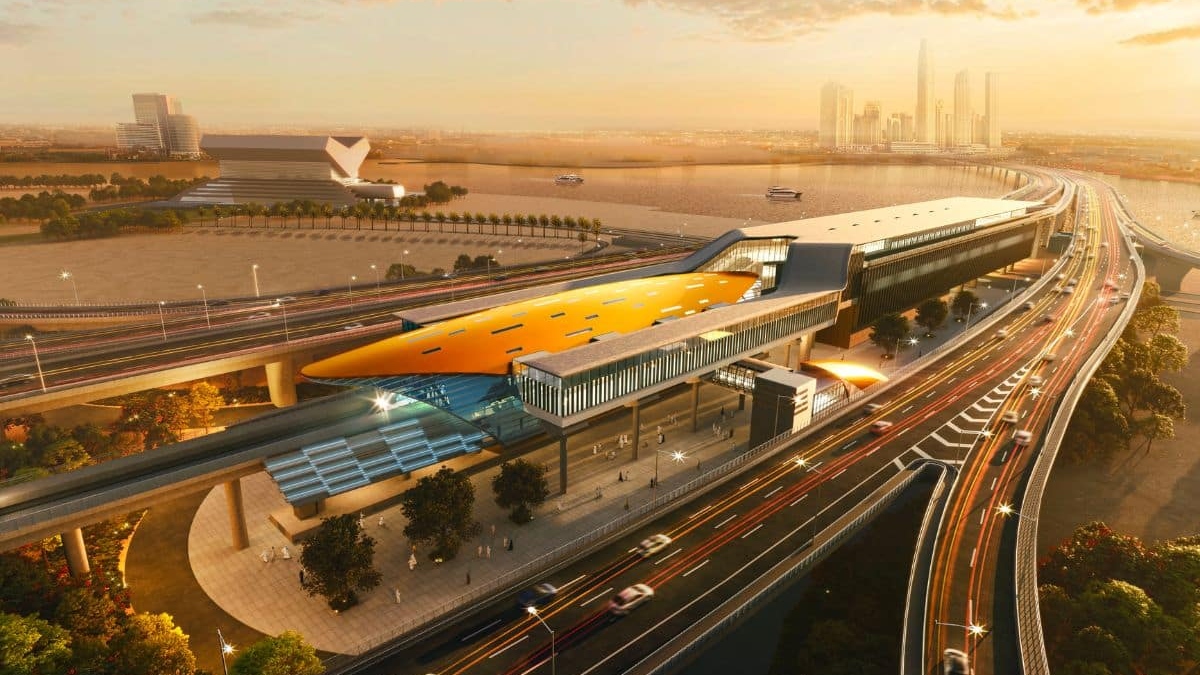Dubai’s Roads and Transport Authority (RTA) has officially announced the launch of the Dubai Metro Blue Line project, a groundbreaking Dhs20.5 billion initiative aimed at improving connectivity and sustainability across the city.
Spanning 30 kilometers, the Blue Line will feature 14 stations, including three major interchange hubs at Al Khor (Green Line), Centrepoint (Red Line), and International City. A signature station at Dubai Creek Harbour, designed by Skidmore, Owings & Merrill (SOM), will serve as a focal point with the capacity to accommodate 160,000 passengers daily by 2040.
The project, awarded to a consortium led by Turkish firms MAPA and LIMAK alongside Chinese rail systems provider CRRC, was unveiled during a press conference by Mattar Al Tayer, Director General and Chairman of RTA. “The Dubai Metro Blue Line aligns with Dubai’s Economic Agenda D33 and Urban Master Plan 2040, setting new standards for sustainable infrastructure,” Al Tayer stated.
Construction is set to begin in April 2025, with operations slated for September 2029 to mark the 20th anniversary of Dubai Metro’s Red Line. The line will accommodate up to 320,000 passengers daily by 2040, featuring Dubai Metro’s first-ever crossing over Dubai Creek via a 1,300-meter bridge.
The Blue Line is expected to generate Dhs56.5 billion in economic, social, and environmental benefits by 2040, reduce road congestion by 20%, and improve property values near stations by up to 25%. It will also support Dubai’s ’20-Minute City’ initiative, ensuring over 80% of city services are accessible within a short commute.
The project underscores Dubai’s commitment to sustainability, being the first transport initiative in the city to comply with platinum-grade green building standards. Mehmet Nazif Gunal, Chairman of MAPA, remarked, “This project will elevate Dubai’s transport system and enhance its global reputation.”
Once completed, the Blue Line will seamlessly connect key areas like Dubai Silicon Oasis, Festival City, and Mirdif, bolstering Dubai’s public transport network, which will expand to 131 kilometers with 67 metro and 11 tram stations.






